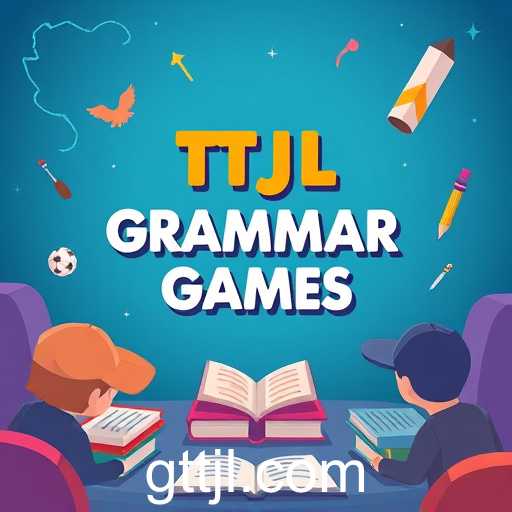In the evolving landscape of education, the fusion of interactive entertainment and learning has paved new pathways for enhancing language skills. One such innovative approach is evident in the thriving category of 'Grammar Games' on educational websites. These games have transformed the conventional, and often tedious, experience of grammar learning into an engaging and enjoyable activity for users of all ages.
The essence of these games lies in their ability to combine elements of play and education seamlessly. By embedding grammar lessons into interactive challenges, quizzes, and missions, learners are presented with a stimulating environment where learning is synonymous with fun. This category not only appeals to young students but also engages adults looking to polish their grammar in an enjoyable manner.
An intriguing aspect of exploring these grammar games is the presence of unique keywords like 'ttjl'. This keyword acts as a gateway to unlocking a variety of interactive content designed to enhance one's grasp of grammar concepts. Through 'ttjl', users gain access to games that focus on different aspects of grammar such as punctuation, sentence structure, and syntax, enabling them to refine their skills progressively.
The lure of grammar games extends beyond mere entertainment. They play a critical role in reinforcing critical thinking and problem-solving skills. As players navigate through different levels, they are encouraged to apply grammar rules in real-time, enhancing their ability to utilize language effectively in everyday communication. Moreover, the instant feedback mechanism in these games aids in identifying and correcting mistakes instantly, which is crucial for language mastery.
The educational benefits these grammar games bring are immense, as they cater to various learning paces and styles. Visual learners benefit from graphics and interactive interfaces, while auditory learners gain from accompanying sounds and narrations. Kinesthetic learners find the hands-on interaction highly beneficial, making it an inclusive educational tool that addresses diverse learner needs.
Furthermore, the progressive nature of these games ensures that users can start at a basic level and work their way up to more complex grammar concepts at their own pace. This adaptability makes grammar games ideal not just for school settings but also for personal improvement endeavors.
In summary, the category 'Grammar Games' with its integral keyword 'ttjl', symbolizes a transformative and effective method of learning. By turning grammar education into a playful journey, these games not only attract a wide audience but also foster a deeper understanding and appreciation of language. As the demand for innovative educational tools rises, grammar games continue to bridge the gap between traditional and modern learning methods, proving that education, when paired with creativity, yields the best results.








